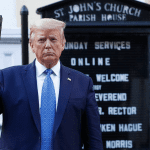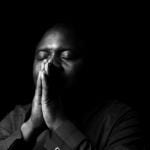Being theological in a political world means standing up for justice because the Word of God compels us.
In 1919, a young German theologian by the name of Karl Barth wrote a biblical commentary that took the theological world by storm. He insisted on one theological premise that can be summed up in a single sentence: “God is God.” In other words, God is sovereign over all Creation, is sovereign over human history, and is sovereign over every human ruler.
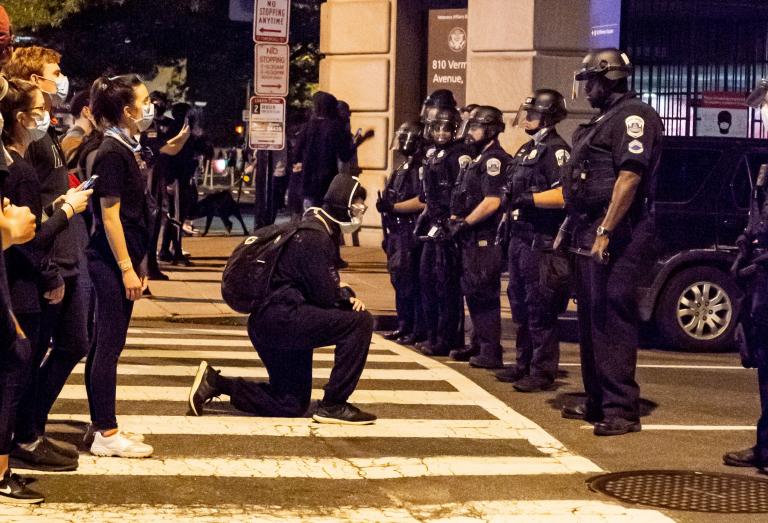
This notion of God’s sovereignty may not sound revolutionary to you.
Most Christians would assent to the notion of God’s sovereignty. On this Holy Trinity Sunday, we sing hymns such as “Holy, God We Praise Your Name” which proclaims:
Lord of all, we bow before you;
all on earth your scepter claim,
all in heav’n above adore you.
Infinite your vast domain,
everlasting is your reign.
And as we read in the first verse of Psalm 8, “O Lord, our Sovereign, how majestic is your name in all the earth.” We don’t bat an eye when we read this. Of course, God is sovereign. What’s the big deal?
But proclaiming God as sovereign was, in fact, heresy in Germany as the Third Reich rose to power.
The co-opted German Christian churches insisted on inserting Adolf Hitler and racial hatred into the Scriptures. They stood “shoulder to shoulder with the Nazis and saw no contradiction between faith in Christ and faith in Hitler” (Stroud, 23). But the two figures could not be more incompatible. Hitler demanded a racially pure Christianity that was completely fused with white nationalism seeking power through domination and violence.
So when theologians and pastors such as Karl Barth, Dietrich Bonhoeffer, and Martin Niemoller spoke out against Hitler and the German Christians, they were attacked by officials in the Reich. They were also attacked by other Christians sympathetic to the Nazis and sometimes their own parishioners. It was a dangerous time to follow Christ, because the gospel of Jesus brought the Nazis under judgement. And the Nazis demanded that they were the ones with total authority and power.
The ethical commandments of the Hebrew Scriptures and the ministry of Jesus Christ stood in stark contrast to Nazi ideology.
For the Nazis, compassion for others was weakness. Treating other races with equity was heretical. And challenging the police state that enforced this ideology was met with swift and painful violence — much as the protests against police brutality and racism in America have been met with swift and painful violence in our own country over the past few weeks.
Yet the German pastors and scholars refused to renounce their proclamation of God’s sovereignty. They began a counter movement to the Nazis called the Confessing Church – Christians who confessed a crucified and risen Christ as Lord. Also, a group of clergy started the Pastors’ Emergency League to protest and resist the tyranny of Hitler and the police state. And pastors throughout Germany courageously preached the gospel knowing that they could be harassed, removed from their pulpits, jailed, and even murdered.
Why were they so willing to stand against the Nazis knowing that it could cost them dearly?
Knowing that parishioners would be angry with them, or threaten them, or leave and take their money with them? Knowing that they could be arrested and put on trial, or even sent to a concentration camp? What compelled them to be so bold with their confession that Jesus Christ is Lord, not Hitler?
“Barth insisted that the clash of theologies (confessional vs. Nazi) presented an urgent crisis in the church’s life in which orthodox theology must combat demonic heresy. God was demanding radical faith rather than resignation or conformity to Nazi Christianity” (Stroud, 33).
Why does the history of Christianity in Germany matter for American Christians today?
Because for the last eighty years, the rise of the Christian Right has demonstrated an increasingly similar pattern between what happened in Nazi Germany and what we are now seeing in America. Radical white fundamentalist Christians are the ones who propelled our current president into the White House. They have supported him as he breaks every single commandment in the Bible. As he declares himself “the Chosen One.” And as he marched on St. John’s Episcopal Church in Washington D.C. earlier this week. On Monday, June 1, uniformed officers attacked the priest and parishioners with tear gas and rubber bullets. Trump violently inserted himself into a space that had been used to give water and rest to people protesting the racist ideology that undergirds the harassment, jailing, and killing of countless black women and men.
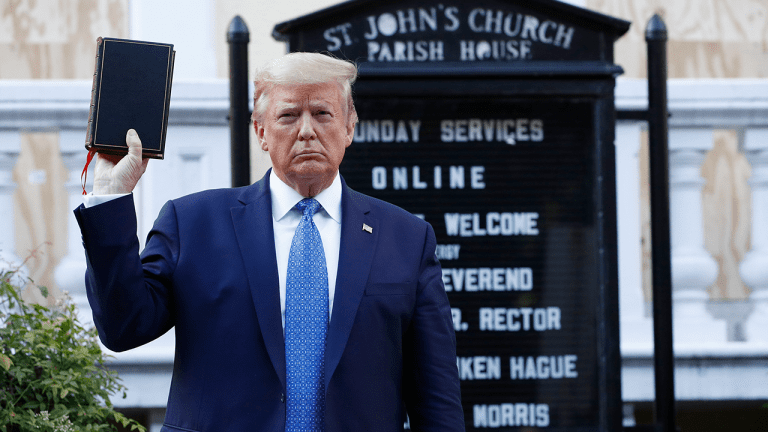
Surely it was accidental that Trump held that Bible upside down and backwards. But there couldn’t be a more symbolic gesture of what he has done to American Christianity.
Regardless of our political or religious affiliations, Americans need to understand what the president has done.
He is using Christianity to justify a version of “law and order” that is based on white supremacy. He is co-opting religious symbols to claim an authority he does not have. Cloaked under the guise of Christianity, he is pushing this country to the brink of authoritarian dictatorship and martial law.
Against this incursion on sacred space by a demonic force, we proclaim Jesus’s words in the Gospel of Matthew.
“All authority in heaven and on earth has been given to me. ” (Matthew 28:18).
Why is this important? Because if God in Jesus Christ is not sovereign, then human beings will try to insert themselves into the sovereign position. And when they do this, they will insist that they are the ultimate authority. They will abuse their power when they do not submit themselves to a higher power that restrains tyranny.
So this past week, I called for clergy to organize themselves into groups such as the Pastors’ Emergency League that formed against the Third Reich in Germany.
Several of these pastors responded, and we met via videoconference to discuss what such a group needs to do in this current state.
A few shared how difficult it is for them to speak prophetically in their congregations where there are Trump supporters.
Or to call for the church to stand against racism when their congregation is primarily white. Or to simply post a measured critique of the president’s actions on their personal Facebook page because certain members accuse them of being “too political.”
When I heard this, I recalled reading about an essay in 1934 entitled, “Lord, Where Shall We Go?” written by a German theologian named Max Lackmann. He insisted that “the decision facing Christians in Germany in 1934 was simply the decision to proclaim the gospel – nothing more. . . There was no compromise possible with Nazi views. The need for the hour was not for the church to become political, but theological.” (Stroud, 34).
Similarly, the decision facing Christians in America in 2020 is simply the decision to proclaim the gospel. There can be no compromise with the racist, nationalistic, militarized, radical Christian Right. We cannot hide behind a desire to not rock the boat, or a desire to be “nice,” or a fear of being called “too political.” As Lackmann knew, “being bound to the scriptures is no refuge from the world; it throws the Christian directly into the conflict” (Stroud, 35).
Submit in order to stand up
In this meeting, one of the pastors said, “We have to submit ourselves to God and the oppressed so that we can stand up to the oppressors.”
I wholeheartedly agree.
We must submit ourselves to the Word of God so that we can stand up to demonic powers that dominate, manipulate, lie, and break every commandment in the Bible. This we do so that we can work to establish the Realm of God as inaugurated by Jesus Christ whom we proclaim as sovereign.
We must submit ourselves to our siblings of other faiths so that we can stand up to the white Christian nationalists who denigrate other religions and other cultures with the false God of Christian exceptionalism. This we do so that the Holy Spirit can move us to work alongside other houses of worship. Together, we can resist injustice and protect the structures of democracy that enable the free exercise of religion and assembly.
We must submit ourselves to our siblings of color so that we can stand up to racialized systems, white privilege, and white supremacy. This we do so that we can proclaim the truth of Paul’s words that in Christ, “there is neither Jew nor Gentile, neither slave nor free, nor is there male and female, for you are all one in Christ Jesus,” (Galatians 3:28).
We must submit ourselves to the weak, the vulnerable, and the peaceful. This we do so that we can stand up to the abusive, the corrupt, and the violent.
We do this not because we are political, but because we are theological. We are being theological in a political world.
Perhaps you have been feeling the tension about what to say in the face of what is happening in our country. Maybe you have felt hesitant to speak up when someone you know – a coworker, a friend, a fellow parishioner, a family member – defends Trump or the actions of this administration. Or maybe you just don’t know what to say and feel at a loss for words.
I want to encourage you to be theological in a political world. To speak God’s truth and then trust God to take it from there.
You can say simply, “I cannot imagine that the God I worship in Jesus Christ would approve of what this regime is doing.”
Or: “I pray every day for God’s will to be done. Not Trump’s will. Not the will of those who are grasping at power with riot gear and guns and tear gas. Nor the will of those who want to undermine the rule of law and install the rule of terror. I pray for God’s will. Because God is sovereign. Jesus Christ is sovereign. The Holy Spirit is sovereign.”
You are not alone.
When you do this, when you speak with theological courage, when you march peacefully with conviction, when you address racism and police brutality and authoritarianism, remember that you are not alone. There are millions of people with you. They are protesting around the world. They are raising their voices and marching in your own state. And they are with you right here in this very church.
Most importantly, remember that when you are theological, God has your back. Remember what Jesus, the sovereign Son of God said to us: “I am with you always, to the end of the age.”
Thanks be to God!
Source: Stroud, Dean R., Preaching in Hitler’s Shadow: Sermons of Resistance from the Third Reich, (Eerdmans, 2013).
See also: Barth, Karl. The Epistle to the Romans. Translated by Edwyn C. Hoskyns. Oxford: Oxford University Press, 1968.
Read also:
Trump Invades Church with Military Force. Christians Must Speak Out!
Trump Has Crossed the Line: A Call for Pastors’ Emergency League 2020
Herod and Trump – Different Times, Same Story
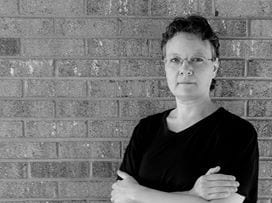
Leah D. Schade is the Assistant Professor of Preaching and Worship at Lexington Theological Seminary in Kentucky and ordained in the ELCA. Dr. Schade does not speak for LTS or the ELCA; her opinions are her own. She is the author of Preaching in the Purple Zone: Ministry in the Red-Blue Divide (Rowman & Littlefield, 2019) and Creation-Crisis Preaching: Ecology, Theology, and the Pulpit (Chalice Press, 2015). She is also the co-editor of Rooted and Rising: Voices of Courage in a Time of Climate Crisis (Rowman & Littlefield, 2019).
Twitter: @LeahSchade
Facebook: https://www.facebook.com/LeahDSchade/


